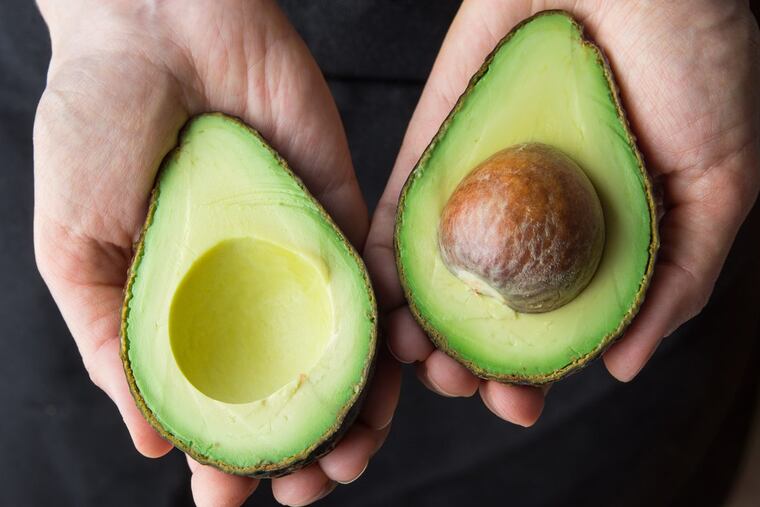
Avocados: Blend them, mash them, bake them, or have them on toast.
The nutrient-rich, heart-healthy green fruit has been a trendy food item among nutritionists, health bloggers, and home cooks for years. But, are you leaving the best of the avocado's health benefits on the table if you forgo eating the pit? Or are you taking a risk?
Americans consume about seven pounds of avocados a year a person in salads, on sandwiches, and even in healthy versions of ice cream. Some consumers may have experience with avocado pits if they've used them try to grow a plant. Though it's an effort that is usually met with disappointment, as it takes roughly 5 to 13 years before the tree is mature enough to bear the luscious fruit. But the idea of eating the pit is likely new to many.
There are plenty of stories, recipes and viral videos out there touting the health benefits of the avocado seed.
You can oven roast it and dice it or smash it with a meat mallet and pulverize it in a blender to add the powder to smoothies.
Advocates claim the smooth brown stone is a natural antioxidant and has anti-inflammatory properties that can help with diarrhea or ulcers and, of paramount interest, curb your appetite and aid with weight loss.
>>READ MORE: When healing is needed, seek out these immunity boosting foods
Historically, researchers at Penn State University found that the Aztec and Mayan cultures used boiled concentrations of the seed in the treatment of fungal and parasitic infections. When placed on an aching tooth, the seed would ease pain. The oil from the seed was used to help with skin eruptions. Nigerians mixed it with soups and puddings because they believed it to be a treatment for hypertension. Africans traditionally ground the seed to help with infections and dysentery.
But, consuming the pit is not without controversy, as it could be mildly toxic if eaten in large quantities.
A 2013 study published in Scientific World Journal found that "high doses of avocado seed extract were toxic to the animals but didn't cause genetic damage" in mice.
The California Avocado Commission doesn't recommend eating the seed because there is not enough research on the subject. Most studies have involved looking at just the extracts from the seeds but not the seeds themselves.
And, a lot more research is needed before there's an answer to the question of whether there are any potential health benefits, the researchers at Penn State pointed out.
In the end, the choice could be a matter of taste.
The pit is very bitter, which is why those who are using it tend to grind it up and disguise it in other foods.